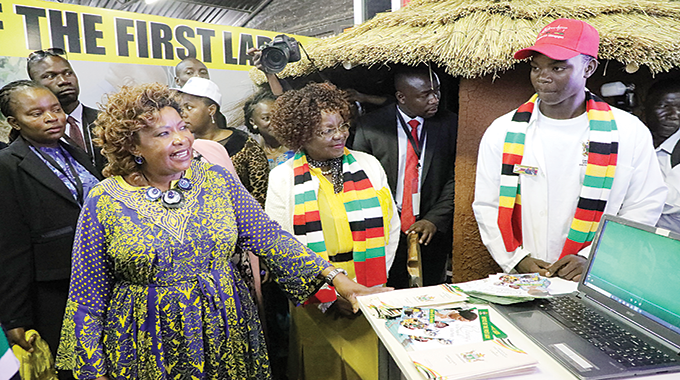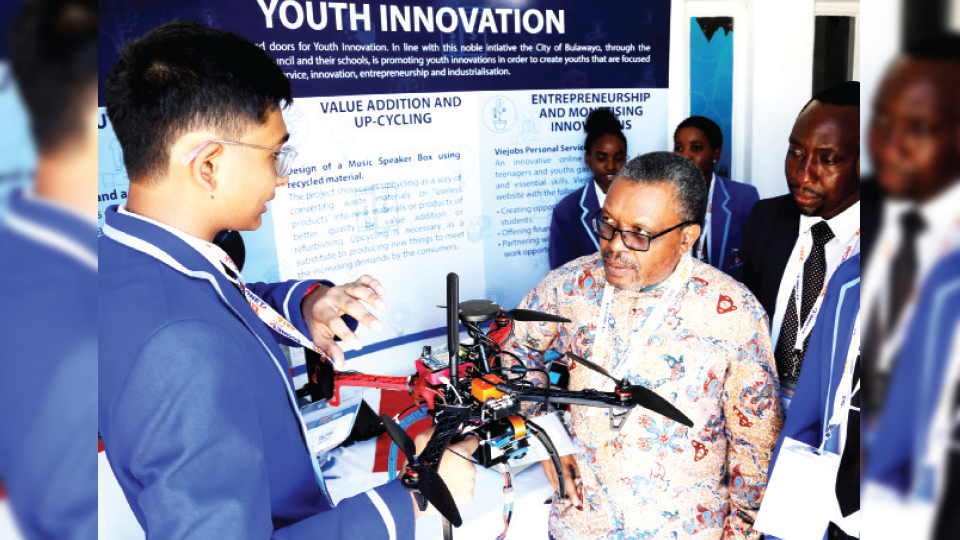Museveni calls for closer bilateral ties with Zimbabwe

Prosper Ndlovu, Business Editor
UGANDAN President Yoweri Kaguta Museveni yesterday called for closer bilateral ties with Zimbabwe, saying his country is keen to partner Zimbabwe in unlocking more opportunities through value addition and beneficiation to reverse losses from continued export of raw materials.
He called upon President Emmerson Mnangagwa to visit his country for further economic discussions, as Kampala seeks deeper bilateral ties with Harare.
Officially opening the 60th edition of the Zimbabwe International Trade Fair (ZITF) in Bulawayo, President Museveni said Zimbabwe was a rich country endowed with natural resources such as minerals that are critical raw materials for modern manufacturing, including military industries.
He said Uganda shared the same dilemma with Zimbabwe on raw material exports but stressed the need for partnerships in developing high value industries.
“I would like us to work together so that we develop this huge potential for Zimbabwe,” said President Museveni. “As I happen to be here, his Excellency President Mnangagwa has got one debt to pay.
“His Excellency President Mnangagwa has not been to Kampala since 1963 when he sneaked in and entered the airport, I think using a cover name, going for guerrilla training in Egypt. This is now exactly 56 years ago,” the Ugandan leader said, drawing applause from the large gathering at the ZITF main arena.
“Now that I am here, I am going to extract a promise from His Excellency that he may rectify that mistake and pay a State visit to Uganda so that we can discuss more.”
President Museveni said there was no way an economy could develop without trade, which he defined as a stimulus of wealth creation.
“When I buy what you produce, I support your prosperity,” he said. “When you buy what I produce, you support my prosperity. Therefore, trade is very crucial. Fortunately, in Eastern Africa we are now developing the railway system through Kenya and through Tanzania.
“Therefore, it will be easy to access our products and your products through the ports of Dar es Salaam and the ports of Mombasa.”
President Museveni revealed that in his discussion with President Mnangagwa in Harare on Thursday night, they deliberated on the problem of producing and exporting raw materials.
“His Excellency has told me that as of today, Zimbabwe is only processing 30 percent of its cotton, 70 percent is exported unprocessed,” he said. “That has been the problem with Uganda and we have been struggling with that.
“We need to educate our population that when you export a kilogramme of unprocessed cotton, when the prices are not good, you may get $1 and when the prices are good you may get $3. But the one who takes that kilogramme of cotton and makes it into a number of shirts may get $15. So, you get $1 from the same amount of cotton from which there is $15. That means Uganda and Zimbabwe, in each kilogramme of cotton, we are donating $14 to other countries.
“Therefore, when we go for a donors conference in Paris, one is not sure who the donor is and who the donee is. It is, however, not the loss of money, the $14 in every kilogramme of cotton, it is the loss of jobs.”
President Museveni said in the case of cotton, for instance, there were lots of job opportunities if there is value addition locally. He said cotton processing stages such as spinning, weaving, colour printing up to garment making, cooking oil and animal feed making, were high value stages that could sustain an economy.
President Museveni revealed that gun powder was made from certain parts of cotton and marvelled that many people, including scientists, were not aware of that reality, hence Africa at large was prejudiced of high value earnings through raw exports. “All those products, all those jobs are lost,” he said. “I, therefore, would want to appeal to my comrades as Africans, be of good cheer, do not be discouraged. If you really stand up and cooperate we can move mountains, our potential is great.”











Comments